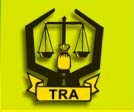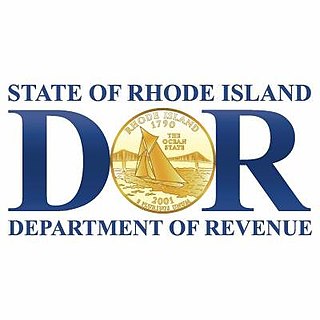
The Kentucky Transportation Cabinet (KYTC) is Kentucky's state-funded agency charged with building and maintaining federal highways and Kentucky state highways, as well as regulating other transportation related issues.

The Oklahoma Department of Transportation (ODOT) is an agency of the government of Oklahoma responsible for the construction and maintenance of the state's transportation infrastructure. Under the leadership of the Oklahoma secretary of transportation and ODOT executive director, the department maintains public infrastructure that includes highways and state-owned railroads and administers programs for county roads, city streets, public transit, passenger rail, waterways and active transportation. Along with the Oklahoma Turnpike Authority, the department is the primary infrastructure construction and maintenance agency of the State.

The State Treasurer of Oklahoma is the chief custodian of Oklahoma’s cash deposits, monies from bond sales, and other securities and collateral and directs the investments of those assets. The treasurer provides for the safe and efficient operation of state government through effective banking, investment, and cash management. The state treasurer has the powers of a typical chief financial officer for a corporation.

The government of the U.S. State of Oklahoma, established by the Oklahoma Constitution, is a republican democracy modeled after the federal government of the United States. The state government has three branches: the executive, legislative, and judicial. Through a system of separation of powers or "checks and balances," each of these branches has some authority to act on its own, some authority to regulate the other two branches, and has some of its own authority, in turn, regulated by the other branches.

The Oklahoma Corporation Commission is the public utilities commission of the U.S state of Oklahoma run by three statewide elected commissioners. Authorized to employ more than 400 employees, it regulates oil and gas drilling, utilities and telephone companies.

The Wisconsin Department of Transportation (WisDOT) is a governmental agency of the U.S. state of Wisconsin responsible for planning, building and maintaining the state's highways. It is also responsible for planning transportation in the state relating to rail, including passenger rail, public transit, freight water transport and air transport, including partial funding of the Milwaukee-to-Chicago Hiawatha Service provided by Amtrak.

The Israeli Ministry of Finance is the main economic ministry of the Government of Israel. It is responsible for planning and implementing the Government's overall economic policy, as well as setting targets for fiscal policy, preparing the draft State Budget and monitoring implementation of the approved budget. The ministry also manages state revenues, collects direct and indirect taxes and promotes nonresident investments. In addition, the ministry conducts economic relations with foreign governments, economic organizations and the international community. The ministry regulates the state owned companies sector and the capital market, savings and insurance. The ministry is also responsible for auxiliary units for government ministries in motor vehicles, computer services, printing and government procurement.

The Oklahoma Department of Public Safety (ODPS) is a department of the government of Oklahoma. Under the supervision of the Oklahoma Secretary of Public Safety, DPS provides for the safety of Oklahomans and the administration of justice in the state. DPS is responsible for statewide law enforcement, vehicle regulation, homeland security and such other duties as the Governor of Oklahoma may proscribe.

The Royal Malaysian Customs Department is a government department body under the Malaysian Ministry of Finance. RMCD functions as the country's main indirect tax collector, facilitating trade and enforcing laws. The top management of JKDM is led by the Director General of Customs and assisted by 3 deputies, namely, the Deputy Director General of Customs Enforcement/Compliance Division, the Deputy Director General of Customs Customs/Inland Tax Division and the Deputy Chief Director of Customs Management Division. The Royal Malaysian Customs Department consists of several divisions, namely the Enforcement Division, the Inland Tax Division, the Compliance Division, the Customs Division, and the Technical Services Division.
The Pennsylvania Department of Revenue (DOR) is an agency of the U.S. state of Pennsylvania. The department is responsible for collecting all Pennsylvania taxes, including all corporate taxes and taxes on inheritance, personal income, sales and use, realty transfer, motor fuel, and all other state taxes. The DOR was created in 1927 and began operating in 1929.

The Tanzania Revenue Authority (TRA) is a semi-autonomous Government Agency of the United Republic of Tanzania. It was established by the Tanzania Revenue Act, CAP. 339 in 1995 and started its operations on the 1st of July 1996. It is headed by the Commissioner General. The Current Commissioner General is Alphayo J. Kidata

The Internal Revenue Service (IRS) is the revenue service for the United States federal government, which is responsible for collecting U.S. federal taxes and administering the Internal Revenue Code, the main body of the federal statutory tax law. It is an agency of the Department of the Treasury and led by the Commissioner of Internal Revenue, who is appointed to a five-year term by the President of the United States. The duties of the IRS include providing tax assistance to taxpayers; pursuing and resolving instances of erroneous or fraudulent tax filings; and overseeing various benefits programs, including the Affordable Care Act.

The Budget of the State of Oklahoma is the governor's proposal to the Oklahoma Legislature which recommends funding levels to operate the state government for the next fiscal year, beginning July 1. Legislative decisions are governed by rules and legislation regarding the state budget process.

The Oklahoma State Budget for Fiscal Year 2011, is a spending request by Governor Brad Henry to fund government operations for July 1, 2010–June 30, 2011. Governor Henry and legislative leader approved the budget in May 2010. This was Governor Henry's eight and final budget submitted as governor.
The Oklahoma State Budget for Fiscal Year 2006, was a spending request by Governor Brad Henry to fund government operations for July 1, 2005–June 30, 2006. Governor Henry and legislative leader approved the budget in May 2005.

The Oklahoma Secretary of Finance, Administration and Information Technology is a member of the Oklahoma Governor's Cabinet. The Secretary is appointed by the governor, with the consent of the Oklahoma Senate, to serve at the pleasure of the governor. The secretary serves as the chief adviser to the governor on fiscal policy, taxation, and the operations and personnel needs of the state government.
The Missouri Department of Revenue is a U.S. state government agency in Missouri created under the Missouri Constitution in 1945, which is responsible for ensuring the proper functioning of state and local government through the collection and distribution of state revenue, and administration of state laws governing driver licensing, and motor vehicle sale and registration. Mount Etna Morris served as the department's first director from July 1946 until his election as State Treasurer of Missouri in November 1948, and later served again as director from 1953 to 1956. The current director, Wayne Wallingford, was named by Governor Mike Parson on December 29, 2021.
The North Carolina Department of Revenue was created in 1921 by the North Carolina General Assembly. The department is headed by a Secretary that is appointed by the Governor. The secretary is a member of the North Carolina Cabinet. Currently, the department is responsible for administering the collection of the North Carolina state income tax, gasoline tax, sales tax, beverage tax, and inheritance tax.

The Arkansas Department of Finance and Administration is a department of the government of Arkansas under the Governor of Arkansas.

The Rhode Island Department of Revenue (RIDOR) is a state agency of Rhode Island responsible for collection of taxes and distribution of state revenue, as well as administration of state laws governing driver licensing, and motor vehicle sale and registration. The current Director of the Department of Revenue is Guillermo Tello, appointed by Governor Dan McKee on May 4, 2021.











